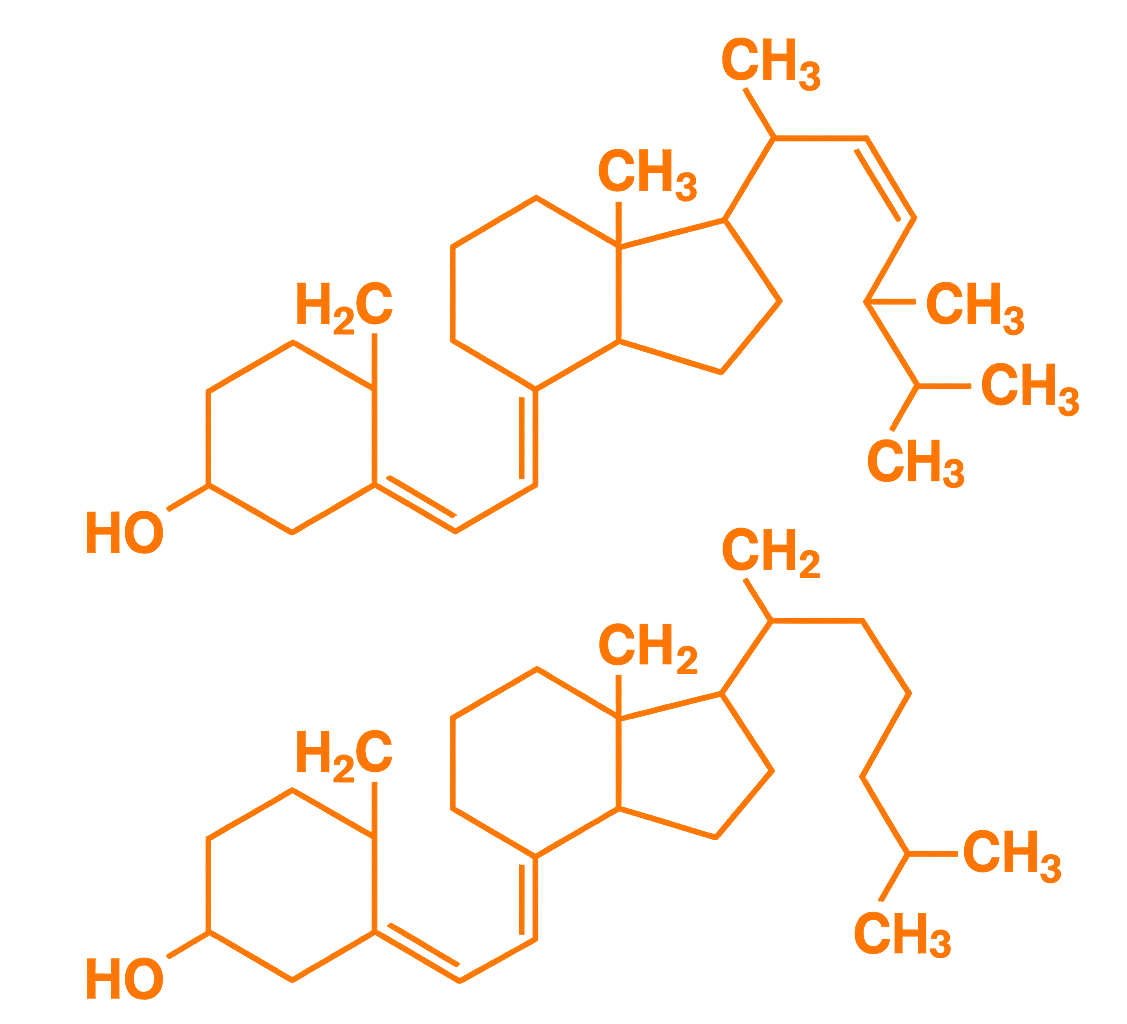Struggling with low energy and stalled gains? Vitamin D deficiency could be the hidden culprit. Get the facts—and fast fixes—to reclaim your strength, immunity, and focus.
Navigation: Stack Index | Vitamins | Minerals | Supplements

Vitamin D does a lot more than help build strong bones. It acts like a hormone in the body—controlling key functions that affect how well you recover, how strong your immune system is, how sharp your brain stays, and how much energy your cells can produce. It influences over 1,000 genes involved in muscle strength, inflammation, hormone balance, and nervous system health.
Simply put: if your Vitamin D levels are low, your body won’t perform or recover the way it should.
Optimization Index
- Functions & Mechanism
- Sources (Sun, Food & Supplements)
- How to Use (Dosing & Timing)
- Optimization Stacks
- Signs of Deficiency
- Risks & Safety
- What Biohackers Get Right
- References & Further Reading
Most people think just getting some sunlight is all it takes to keep good Vitamin D levels. But modern life gets in the way. Time indoors, sunscreen, skin tone, age, and even how well your liver and kidneys function all affect how much active Vitamin D your body can make. Many active, seemingly healthy people still end up with low levels—and the result is often slower recovery, lower strength, more fatigue, and a weaker immune system.
Low Vitamin D has been linked to lower testosterone, slower muscle repair, more frequent infections, increased inflammation, and even mood swings. It’s not always obvious, but the effects add up. Anyone training hard, working through stress, or pushing their limits can feel it—lower energy, slower gains, more frequent setbacks.
One of Vitamin D’s key jobs is to keep the immune system running efficiently. It helps immune cells fight off real threats while keeping inflammation under control. Without enough Vitamin D, immune function can suffer—leading to more frequent illnesses or nagging fatigue.
It also affects brain chemistry. Vitamin D supports production of dopamine and serotonin—important for mood, motivation, and mental sharpness. Low levels are often linked with mood dips, poor focus, and mental burnout—especially when combined with training stress or a busy lifestyle.
Vitamin D is one of the most effective ways to support strength, recovery, immunity, and long-term resilience. It’s not just a basic vitamin—it’s a key part of building a body that can handle stress, perform well, and bounce back quickly.
Functions & Mechanism
Vitamin D (specifically D3, or cholecalciferol) converts in the liver and kidneys into calcitriol, its active form. Calcitriol binds to the Vitamin D Receptor (VDR), which then regulates key genetic pathways.
- Immune defense (T-cell regulation, anti-inflammatory balance)
- Muscle contraction, power output, and repair
- Neurotransmitter production and nervous system resilience
- Testosterone regulation and metabolic energy production
Sources (Sun, Food & Supplements)
☀️ Sunlight
UVB exposure converts cholesterol in the skin into Vitamin D3. However, synthesis depends on:
- Latitude (further from the equator = less D)
- Skin tone (darker skin needs more exposure)
- Season and weather
- Sunscreen use
🥩 Top Food Sources
- Fatty fish (salmon, sardines, mackerel)
- Egg yolks
- Cod liver oil
- Fortified dairy or plant milks
💊 Supplementation
Most high performers use D3 supplements to maintain optimal levels.
- D3 (cholecalciferol) is more bioavailable than D2
- Often paired with Vitamin K2 for synergy and safety
How to Use (Dosing & Timing)
| Group | Typical Dose (IU/day) |
|---|---|
| General population | 600–800 IU |
| Athletes / High Stress | 2,000–5,000 IU (with testing) |
Tips:
- Best absorbed with fat-containing meals
- Blood testing (25(OH)D) recommended every 6–12 months
- Target blood range: 40–70 ng/mL
Optimization Stacks
| Goal | Stack Strategy |
|---|---|
| Immune Armor | Vitamin D3 + Vitamin A + Zinc + Magnesium |
| Muscle & Bone Recovery | Vitamin D3 + Vitamin K2 + Collagen + Creatine |
| Neuro-Resilience | Vitamin D3 + DHA/EPA + Magnesium Threonate |
Signs of Deficiency
- Frequent colds or infections
- Depressed mood or chronic fatigue
- Muscle weakness or cramps
- Brain fog or poor concentration
- Low testosterone (especially in men)
Risks & Safety
- Toxicity is possible above 10,000 IU/day long-term
- Can raise calcium levels—especially without Vitamin K2
- Always monitor blood levels before prolonged supplementation
What Biohackers Get Right
Top biohackers treat Vitamin D as a foundation stack—especially in low-sunlight environments or winter months.
- Ben Greenfield: Recommends 5,000 IU/day D3 + K2 in his winter recovery protocol
- Dave Asprey: Uses blood testing to fine-tune dosing, stacking D3 with mitochondrial support
Recent studies support this approach. Frontiers in Immunology (2023) confirms Vitamin D’s role in controlling cytokine storms and aiding long COVID recovery. Others show cognitive benefits in older adults with low baseline D.
References & Further Reading
- Vitamin D and the Athlete – PubMed Central
- Vitamin D in Immune Function – Frontiers (2023)
- Vitamin D Deficiency – Healthline
- Ben Greenfield Life – Winter Protocols
- Dave Asprey’s Stack Recommendations
Disclaimer: This content is for educational purposes only and is not medical advice. Consult your physician before starting any new supplement protocol.
Navigation: Stack Index | Vitamins | Minerals | Supplements